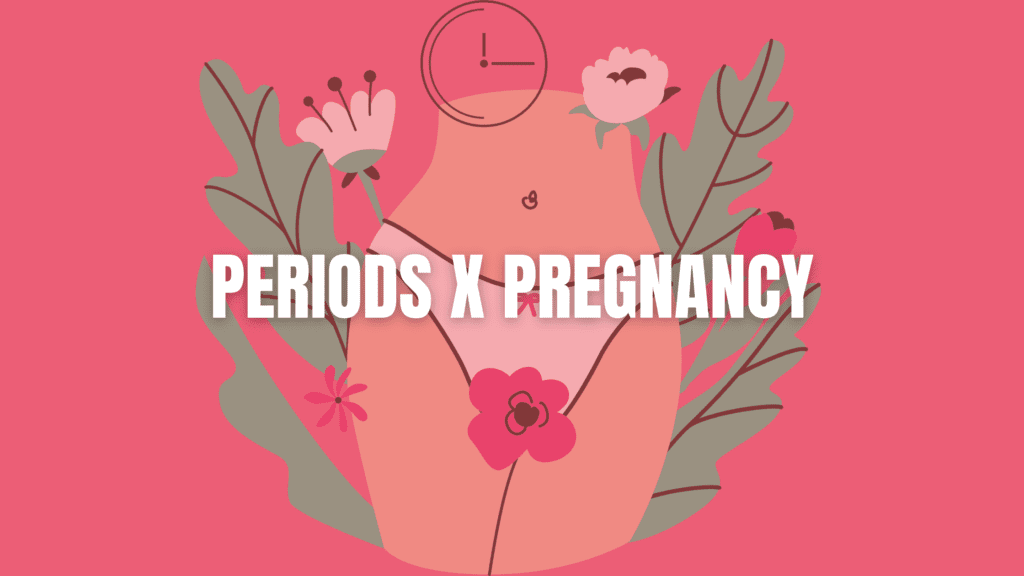When it comes to pregnancy and your menstrual cycle, there are a lot of misconceptions. Many people believe that having sex during their period makes pregnancy impossible. However, the reality is more complex. In this blog, we’ll dive into your question of can i get pregnant during my period, and how your cycle works, and what factors might increase the chances.
Understanding the Menstrual Cycle
To answer the question, it’s important to first understand how the menstrual cycle works. The average cycle lasts about 28 days, though it can vary between individuals. It consists of four main phases:
- Menstrual Phase (Your Period)
This is when the uterus sheds its lining, resulting in bleeding. It typically lasts 3–7 days. - Follicular Phase
During this phase, the body prepares to release an egg, and the uterine lining begins to thicken. - Ovulation Phase
This is when an egg is released from the ovary, usually around day 14 of a 28-day cycle. - Luteal Phase
After ovulation, the body prepares for potential pregnancy. If the egg isn’t fertilized, the cycle restarts with your period.
Can You Get Pregnant During Your Period?
The short answer is yes, although it’s unlikely. Here’s why:
- Sperm Can Live Up to 5 Days
Sperm can survive in the female reproductive system for up to five days. If you have sex during your period and ovulate shortly after, the sperm could fertilize the egg. - Irregular Cycles Can Be Unpredictable
If your cycles are irregular, ovulation might happen earlier than expected. This increases the chances of getting pregnant during or shortly after your period.
- Short Menstrual Cycles
If your cycle is shorter (e.g., 21 days), ovulation may occur closer to the end of your period, making pregnancy more likely.
Factors That Affect Your Chances of Pregnancy During Your Period
- Cycle Length
Shorter cycles mean ovulation happens sooner, which can overlap with the end of your period. - Irregular Ovulation
Conditions like stress, hormonal imbalances, or medical issues can make ovulation unpredictable. - Duration of Your Period
If you have a long period, there may be less time between the end of your period and ovulation, increasing the chances of conception. - Sperm Lifespan
Since sperm can survive for several days, timing plays a crucial role in whether pregnancy occurs.
When is Pregnancy Most Likely?
Pregnancy is most likely during the ovulation phase, which usually occurs about 10–16 days before your next period. However, because cycles can vary, the “fertile window” can sometimes overlap with the end of your period.
How to Prevent Pregnancy During Your Period
If you’re not trying to conceive, it’s important to use protection every time you have sex, even during your period.
- Use Condoms
Condoms are a reliable way to prevent pregnancy and protect against sexually transmitted infections (STIs). - Hormonal Contraceptives
Birth control pills, patches, or injections can regulate your cycle and prevent ovulation. - Emergency Contraception
If you’ve had unprotected sex during your period and are worried about pregnancy, emergency contraception can help.
Common Myths About Pregnancy and Periods
- “You Can’t Get Pregnant During Your Period”
While the chances are low, it’s not impossible. - “Blood Prevents Sperm from Surviving”
Sperm can survive in the reproductive tract, regardless of menstrual blood. - “All Cycles Are the Same”
Every individual’s cycle is unique, and factors like stress or health conditions can affect ovulation timing.
Why Timing Matters
The timing of ovulation and intercourse is crucial for pregnancy to occur. Even though it’s less likely during your period, the possibility exists if:
- You ovulate early.
- Your cycle is short.
- Sperm survives long enough to meet an egg.
What If You’re Trying to Avoid Pregnancy?
If you’re not ready for pregnancy, relying solely on the timing of your period isn’t a safe method. Instead:
- Track your cycle using apps or fertility awareness methods.
- Combine natural tracking with reliable contraceptive methods.
Final Thoughts
Can you get pregnant during your period? Yes, but the chances are lower compared to other times in your cycle. Understanding your menstrual cycle and using contraception are the best ways to avoid unplanned pregnancies. If you’re ever unsure about your fertility or reproductive health, consult a healthcare provider for personalized advice.
FAQs
1. How likely is it to get pregnant during your period?
The likelihood is low but not zero. Factors like short cycles or early ovulation can increase the chances.
2. Can sperm survive in menstrual blood?
Yes, sperm can survive in the female reproductive system, even during menstruation.
3. Does having a regular cycle reduce the chances of pregnancy during your period?
Regular cycles make ovulation more predictable, which can help reduce the chances.
4. Is period sex safe?
Yes, but using protection is important to avoid STIs and unplanned pregnancies.
5. What’s the best way to avoid pregnancy during your period?
Use contraception like condoms or hormonal birth control, regardless of the time in your cycle.

